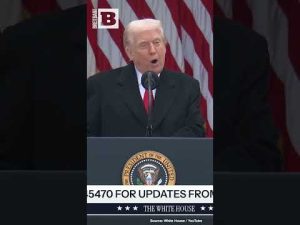In Minnesota, a significant scandal has come to light that might leave taxpayers feeling a bit queasy. Abdirashid Bitsy Dole, a 36-year-old man, has been charged with multiple counts of wire fraud and money laundering, making him the 78th defendant in what has been dubbed the Feeding Our Future fraud scheme. This scheme is purportedly the largest Covid-19 fraud case in the United States, and it has cost taxpayers a staggering $250 million. Now, that is a hefty number that could make anyone’s head spin!
The Feeding Our Future program was originally created as a welfare initiative aimed at providing meals for hungry children. But somewhere along the way, it seems that too many individuals decided to take a wrong turn on the road to nutritional aid. Instead of helping those in need, an alarming number of participants found a way to siphon off funds for their own purposes. Recent statements from legal authorities in Minnesota suggest that once investigations wrap up, the total scope of fraud could exceed an eye-popping $1 billion. That’s a lot of cash going to the wrong place!
Reports indicate that members of Minnesota’s sizable Somali community have been primarily implicated in this fraudulent scheme. Confidential sources have revealed that millions of dollars from these dishonest dealings have allegedly been funneled back to Somalia, ultimately winding up in the hands of the extremist group al-Shabab. This is not just some trivial theft; it’s a critical national security issue with far-reaching implications. Minnesota taxpayers might be horrified to learn that their hard-earned dollars have, however unwittingly, been bolstering terrorism overseas.
A recent piece by City Journal dives into the disturbing entanglements at play, analyzing how cultural clan loyalties clash with a government that seems hesitant to address the issue for fear of being labeled racist. This combination has created a fertile ground for corruption, resulting in a rather curious modern-day Robin Hood scenario—except, in this case, the “rich” seem to be the ones who happen to be the hardworking taxpayers of Minnesota, and the “poor” recipients have ultimately turned out to be terrorists.
The political fallout has been swift. Congressman Tom Emmer did not hold back in expressing his outrage, proclaiming Minnesota as “the land of 10,000 frauds under Tim Walz.” His remarks underscore a growing concern among the state’s residents, invoking a tangible sense of betrayal among those who play by the rules. Even the current President has weighed in, stating that the rampant fraud in Minnesota calls for immediate action, including the termination of Temporary Protected Status for Somalis in the state.
The moral of the story? It’s crucial for programs designed to help the community to be safeguarded from fraud and abuse, lest they turn into a smorgasbord for those with malicious intents. The situation in Minnesota serves as a cautionary tale that reminds us all of the importance of accountability—after all, when bureaucracy goes unchecked, it’s not just a recipe for disaster; it’s a banquet of fraud that hardworking citizens are all too eager to see put to a stop.







